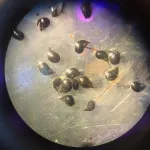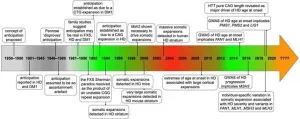(Press-News.org) A negative experience with food usually leaves us unable to stomach the thought of eating that particular dish again. Using sugar-loving snails as models, researchers at the University of Sussex believe these bad experiences could be causing a switch in our brains, which impacts our future eating habits.
Like many other animals, snails like sugar and usually start feeding on it as soon as it is presented to them. But through aversive training which involved tapping the snails gently on the head when sugar appeared, the snails' behaviour was altered and they refused to feed on the sugar, even when hungry.
When the team of Sussex Neuroscience researchers led by Dr Ildiko Kemenes looked a little closer, they discovered a neuronal mechanism that effectively reversed the snails' usual response to sugar after the conditioning training had taken place.
Dr Ildiko Kemenes, Reader in Neuroscience in the University of Sussex's School of Life Sciences, explained: "There's a neuron in the snail's brain which normally suppresses the feeding circuit. This is important, as the network is prone to becoming spontaneously activated, even in the absence of any food. By suppressing the feeding circuit, it ensures that the snail doesn't just eat everything and anything. But when sugar or other food stimulus is present, this neuron becomes inhibited so that feeding can commence.
"After the aversive training, we found that this neuron reverses its electrical response to sugar and becomes excited instead of inhibited by it. Effectively, a switch has been flipped in the brain which means the snail no longer eats the sugar when presented with it, because sugar now suppresses rather than activates feeding."
When researchers presented the trained snails with a piece of cucumber instead, they found that the animal was still happy to eat the healthy option - showing that the taps were associated with only the particular type of food they were trained to reject.
George Kemenes, Professor of Neuroscience at the University of Sussex and a senior member of the investigator team, added: "Snails provide us with a similar yet exceptionally basic model of how human brains work.
"The effect of the inhibitory neuron which suppresses the feeding circuit in the snail is quite similar to how, in the human brain, cortical networks are under inhibitory control to avoid 'runaway' activation which may lead to overeating resulting in obesity.
"In our research, the negative experience the snail had with the sugar could be likened to eating a bad takeaway curry which then puts us off that particular dish in future.
"We believe that in a human brain, a similar switch could be happening where particular groups of neurons reverse their activity in line with the negative association of a particular food. "
The research, funded by the Biotechnology and Biological Sciences Research Council (BBSRC) and published in Current Biology, also revealed that when the neuron was removed entirely from trained snails, they returned to eating sugar again.
Dr Ildiko Kemenes said: "This suggests that the neuron is necessary for the expression of the learned behaviour and for altering the response to sugar.
"However, we cannot rule out that the sugar-activated sensory pathway also undergoes some changes, so we don't make the assumption that this is all that's happening in the brain."
INFORMATION:
FRANKFURT. More than two thirds of the earth is covered by clouds. Depending on whether they float high or low, how large their water and ice content is, how thick they are or over which region of the Earth they form, it gets warmer or cooler underneath them. Due to human influence, there are most likely more cooling effects from clouds today than in pre-industrial times, but how clouds contribute to climate change is not yet well understood. Researchers currently believe that low clouds over the Arctic and Antarctic, for example, contribute to the warming of these regions by blocking the direct radiation of long-wave heat from the Earth's surface.
All ...
Low-income middle-aged African-American women with high blood pressure very commonly suffer from depression and should be better screened for this serious mental health condition, according to a study led by researchers at the Johns Hopkins Bloomberg School of Public Health.
The researchers found that in a sample of over 300 low-income, African-American women, aged 40-75, with uncontrolled hypertension, nearly 60 percent screened positively for a diagnosis of depression based on a standard clinical questionnaire about depressive symptoms.
The results appeared February 10 in JAMA Psychiatry.
"Our findings suggest that low-income, middle-aged African-American women with hypertension really should be screened for depression symptoms," ...
CHAMPAIGN, Ill. -- People who participated in a health education program that included both mental health and physical health information significantly reduced their risks of cardiovascular disease and other chronic diseases by the end of the 12-month intervention - and sustained most of those improvements six months later, researchers found.
People who participated in the integrated mental and physical health program maintained significant improvements on seven of nine health measures six months after the program's conclusion. These included, on average, a 21% ...
New research shows that biodiversity is important not just at the traditional scale of short-term plot experiments--in which ecologists monitor the health of a single meadow, forest grove, or pond after manipulating its species counts--but when measured over decades and across regional landscapes as well. The findings can help guide conservation planning and enhance efforts to make human communities more sustainable.
Published in a recent issue of Frontiers in Ecology and the Environment, the multi-institutional study was led by Dr. Christopher Patrick ...
STEMOs (Stroke-Einsatz-Mobile) have been serving Berlin for ten years. The specialized stroke emergency response vehicles allow physicians to start treating stroke patients before they reach hospital. For the first time, a team of researchers from Charité - Universitätsmedizin Berlin has been able to show that the dispatch of mobile stroke units is linked to improved clinical outcomes. The researchers' findings, which show that patients for whom STEMOs were dispatched were more likely to survive without long-term disability, have been published in JAMA*.
The phrase 'time is brain' emphasizes a fundamental principle from emergency medicine, namely that after stroke, every minute counts. Without ...
With the help of the international Gemini Observatory, a Program of NSF's NOIRLab, and other ground-based telescopes, astronomers have confirmed that a faint object discovered in 2018 and nicknamed "Farfarout" is indeed the most distant object yet found in our Solar System. The object has just received its designation from the International Astronomical Union.
Farfarout was first spotted in January 2018 by the Subaru Telescope, located on Maunakea in Hawai'i. Its discoverers could tell it was very far away, but they weren't sure exactly how far. They needed more observations.
"At that time we did not know the object's orbit as we only had the Subaru discovery observations over 24 hours, but it takes years of ...
A report summary released today by a team at Lehigh University led by Thomas McAndrew , a computational scientist and assistant professor in Lehigh's College of Health, shares the consensus results of experts in the modeling of infectious disease when asked to rank the top 5 most effective interventions to mitigate the spread and impact of COVID-19 in the U.S.
The report is part of an ongoing meta forecasting project aimed at translating forecasting and real world experience into actions.
McAndrew and his colleagues wanted to answer "Here is where ...
Wilmington, DE, Feb. 11, 2020 -Scientists have developed an affordable, downloadable app that scans for potential unintended mistakes when CRISPR is used to repair mutations that cause disease. The app reveals potentially risky DNA alterations that could impede efforts to safely use CRISPR to correct mutations in conditions like sickle cell disease and cystic fibrosis. The development of the new tool, called DECODR (which stands for Deconvolution of Complex DNA Repair), was reported today in The CRISPR Journal by researchers from ChristianaCare's Gene Editing Institute.
"Our research has shown that when CRISPR is used to repair a gene, it also can introduce a variety of subtle changes to DNA near the site of the repair," said Eric ...
Amsterdam, February 11, 2021 - Recent genetic data from patients with Huntington's disease (HD) show that DNA repair is an important factor that determines how early or late the disease occurs in individuals who carry the expanded CAG repeat in the HTT gene that causes HD. The processes of DNA repair further expand the CAG repeats in HTT in the brain implicated in pathogenesis and disease progression. This special issue of the Journal of Huntington's Disease (JHD) is a compendium of new reviews on topics ranging from the discovery of somatic CAG repeat expansion in HD, to our current understanding of the molecular mechanisms involved ...
In the last 25 years, scientists have discovered over 4000 planets beyond the borders of our solar system. From relatively small rock and water worlds to blisteringly hot gas giants, the planets display a remarkable variety. This variety is not unexpected. The sophisticated computer models, with which scientists study the formation of planets, also spawn very different planets. What the models have more difficulty to explain is the observed mass distribution of the planets discovered around other stars. The majority have fallen into the intermediate mass category - planets with masses of several Earth masses to around that of Neptune. Even in ...





